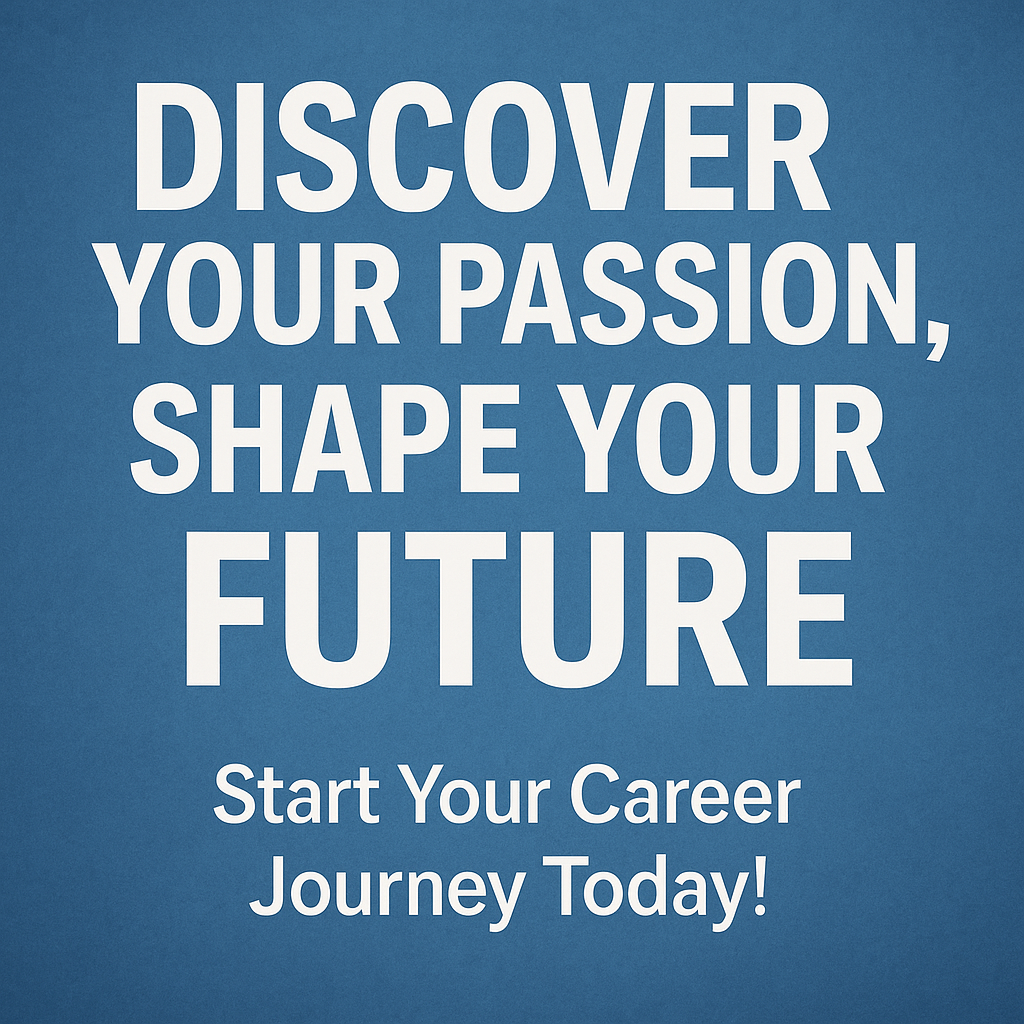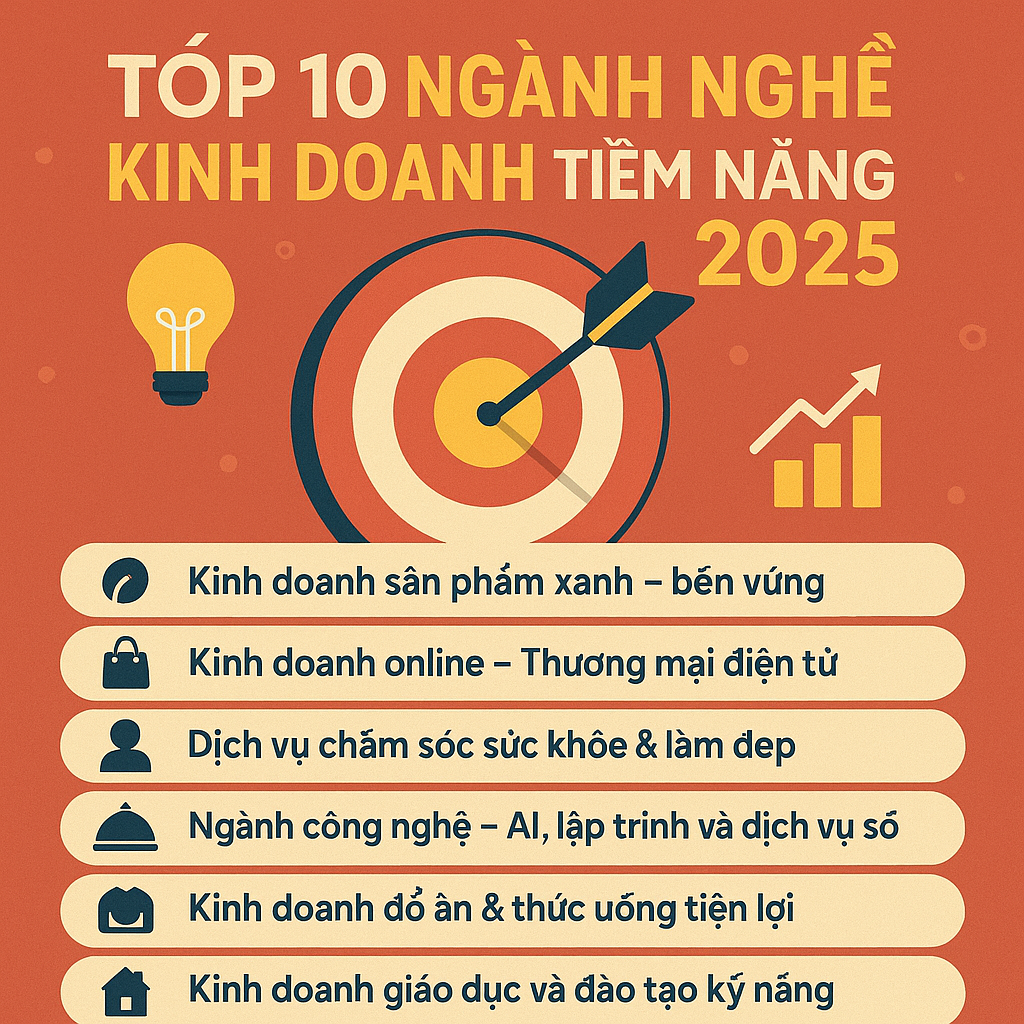Unlock your potential, explore meaningful career pathways, and build a future that excites you. Whether you’re stepping out of high school, returning to school, or pivoting into a new field—now’s the time to take the first step. Let us guide you through the tools, opportunities, and strategies to turn your ambitions into reality. Your future starts here.
1. Why Career Exploration Matters
In today’s world, making the right career choice is more important than ever. With changing technologies, global competition, and evolving industries, your choice of profession can determine not just what you do—but who you become. Career exploration isn’t just about picking a job; it’s about discovering your strengths, values, and passions—and aligning them with opportunities that inspire you. When you begin with “why,” you build a strong foundation for long-term satisfaction, growth, and success.ư
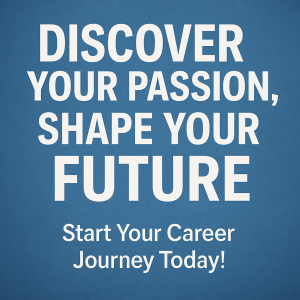
2. Understand Yourself First
Before diving into job listings or certifying programs, you’ll want to really understand what drives you. Ask yourself questions like: What activities energize me? What skills come naturally? What values matter most to me—such as creativity, helping others, producing results, or working independently? By identifying your interests, personality preferences, and abilities, you can start narrowing down the fields that fit you best. Self-awareness helps you avoid jobs that just happen to pay well, and instead aim for work that truly resonates.

3. Explore the Possibilities
Once you’ve taken time to reflect, it’s time to explore the vast landscape of careers. From healthcare and tech to creative industries and skilled trades—the United States offers a multitude of paths. Consider roles in digital design, cybersecurity, advanced manufacturing, renewable energy, allied health, education, logistics, and more. Use online career assessment tools, attend career fairs, talk with professionals in the field, and shadow or intern if possible. This hands-on exploration will help you test what fits in a way no brochure or job board can.
4. Match Skills to Opportunity
The best career choice is where your inner world (skills, interests, values) intersects with the outer world (employer demand, industry growth, regional opportunity). Research the job market: which fields are growing? What skills are most in demand right now? For example, roles like data analytics, healthcare support, renewable-energy technicians, and skilled manufacturing are seeing rising demand. By aligning your personal profile with market trends, you reduce risk and enhance your chances of long-term success and job security.
5. Set Smart Goals
Once you’ve selected one or more career paths to focus on, it’s time to set SMART goals: Specific, Measurable, Achievable, Relevant, Time-bound. For instance, you might set a goal like: “Within six months I’ll complete a set of online workshops in UX design, build a portfolio of two projects, and schedule informational interviews with three professionals in the field.” By breaking your future into manageable steps, you turn a vague dream into an actionable plan.
6. Build Your Pathway
Your pathway might include education, training, certification, internships, networking—and sometimes starting in a smaller role and growing. If you’re just out of high school, consider vocational training, associate degrees, certificate programs, or even apprenticeships. If you’re returning to school or pivoting, you might seek boot-camps, online learning, or part-time programs to fit your schedule. The key is to choose options that build relevant skills and credentials that employers trust—and that fit your budget and timeline.
7. Develop Transferable Skills
Remember: skills like communication, problem-solving, teamwork, adaptability, and digital literacy are valuable in nearly every field. They’re often what distinguish successful people from those who simply fulfill job tasks. As you build your technical competencies, don’t neglect these transferable skills. Volunteer experiences, club participation, projects, part-time work all help build your soft skills—and employers notice.
8. Create Your Personal Brand
In today’s connected world, your personal brand matters. That includes your resume or CV, your LinkedIn profile, your digital footprint, and your professional presence. Make sure your online accounts reflect who you are and the value you bring. Showcase your achievements, capacity to learn, and positive attitude. Share work, projects, or insights in your field of interest. Networking isn’t just handing out business cards—it’s building relationships that help you learn and advance.
9. Network Strategically
You don’t build a career in isolation. Reaching out to mentors, alumni, professional associations, and even friends or family can open doors. Attend local meetups, industry webinars, trade conferences, or virtual groups in your field. Ask meaningful questions: “How did you get started?” “What do you wish you knew at the beginning?” “What skills matter most now?” Many job opportunities are never advertised—so when you network, you place yourself ahead of the curve.
10. Gain Real-World Experience
Theory is important—but experience is what differentiates. Internships, part-time jobs, volunteering, freelance projects—they all count. Even if your first role seems modest, view it as a stepping-stone. Every role offers learning: join cross-functional tasks, seek feedback, reflect on what you’re learning. This builds credibility, expands your network, and gives you stories to tell in interviews.
11. Stay Flexible & Keep Learning
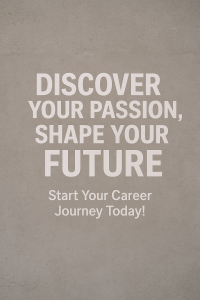
The job market will change. New technologies, economic shifts, global events—they all shape what skills and roles are valuable. So view your career as a journey, not a one-time decision. Build a mindset of continuous learning: take short courses, keep your certifications updated, follow industry news, and be open to new roles or new ways of doing things. Flexibility is often the key to resilience and long-term satisfaction.
12. Overcome Common Barriers
Many people hesitate for reasons like fear of failure, lack of money for training, not knowing where to start, or feeling it’s too late to change. But remember: there’s rarely a “perfect time.” Many high-paid or meaningful professionals started later or shifted mid-career. Use free or low-cost resources (online MOOCs, community programs, library access) to start small. Seek scholarships, grants, employer-based training. Most importantly: take the first step—imperfection is okay.
13. Choose the Right Environment
Beyond title and salary, consider your work environment: Are you more comfortable in a collaborative team or working independently? Do you prefer fast-paced settings or steady routines? Do you enjoy travel, or do you value stability? What about company culture: structured versus flexible? By choosing an environment that matches your preferences, you increase the chances you’ll enjoy your work long-term.
14. Financial & Lifestyle Considerations
Yes—salary matters. But it’s just one piece of the puzzle. Consider cost of living, benefits (healthcare, retirement plan, tuition reimbursement), work hours, commute time, and growth opportunities. A high-paying job today might lead to burnout or stagnation if it doesn’t fit your life. Balance your professional goals with the lifestyle you want—your career should support the life you want to live, not overshadow it.
15. Measure Progress & Adjust
Once you’re on your path, track your progress. Revisit your SMART goals regularly—every 3–6 months. Are you learning new skills? Are you expanding your network? Are you seeing growth in your roles or responsibilities? If something isn’t working, don’t be afraid to adjust. Perhaps you’ll pivot to a related field, change training programs, or explore a different region. Adaptation is not failure—it’s smart career management.
16. Showcase Your Value
As you gain skills and experience, make sure you can articulate your value to employers. Use the STAR method in interviews (Situation, Task, Action, Result). Highlight what you accomplished: improved efficiency, solved a problem, saved money, managed a team. Show how your skills, experience and attitude position you for the next level. Keep your portfolio or project list up to date and ready.
17. Think Long-Term: Growth & Leadership
Once you’re settled in a role, don’t stop. Ask: Where do I want to be in 3, 5, 10 years? How can I build expertise or leadership? Seek mentors, volunteer for stretch assignments, lead a team or project, contribute to industry groups. Leadership isn’t just for managers—it’s about taking responsibility, innovating, and influencing outcomes. Building these skills now will prepare you for higher levels of impact and compensation.
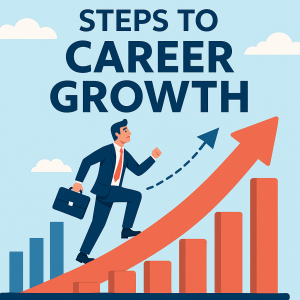
18. Giving Back & Making Impact
Often the most fulfilling careers are those that allow you to make an impact—on people, community, environment. Consider how your work connects to your values. Maybe you mentor others, participate in community service, innovate sustainable solutions, or lead diversity initiatives. When your day-to-day aligns with your values, you’ll feel deeper meaning—not just a paycheck.
19. Technology & Digital Transformation
In nearly every field, digital transformation is accelerating. Whether you’re in manufacturing, health care, education or retail—you’ll likely use data, collaborate remotely, work across platforms, and adapt to change. Take advantage of digital tools: build your digital literacy, learn about automation, cybersecurity basics, and remote collaboration. Being digitally fluent opens doors and future-proofs your career.
20. Your Future Starts Now
There’s no time like the present. If you’re still wondering “Which career is right for me?” or “What should I do next?”—that’s okay. Use this as your sign to begin. Start by reflecting on your interests and strengths. Explore one new field this week. Reach out to one professional for an informational interview. Enroll in one mini-course or webinar. Set one SMART goal. Momentum builds when you move—even a small step counts.
Take Action Today: Your Journey Awaits
Ready to turn ambition into action? Here’s what you can do right now:
-
Download a free career-assessment tool (Google “free career assessment USA”).
-
List your top three interests and skills—then research three relevant careers.
-
Set one SMART goal you can achieve in the next 30 days.
-
Attend a webinar, local career fair, or virtual networking event in your chosen field.
-
Update your LinkedIn profile and share one post about your career journey or goal.
-
Reach out to someone in your network (or a new contact) and ask one question: “How did you start in your role?”
Remember: A meaningful career isn’t only about what you do—it’s about who you become and how you make a difference. Your passion, your skills, your dedication—they all matter. The future is not something that happens to you—it’s something you create.
Let’s begin this journey together. Discover your passion. Shape your future. Start today.
Thank you for reading. We look forward to seeing you succeed in the career you love.






